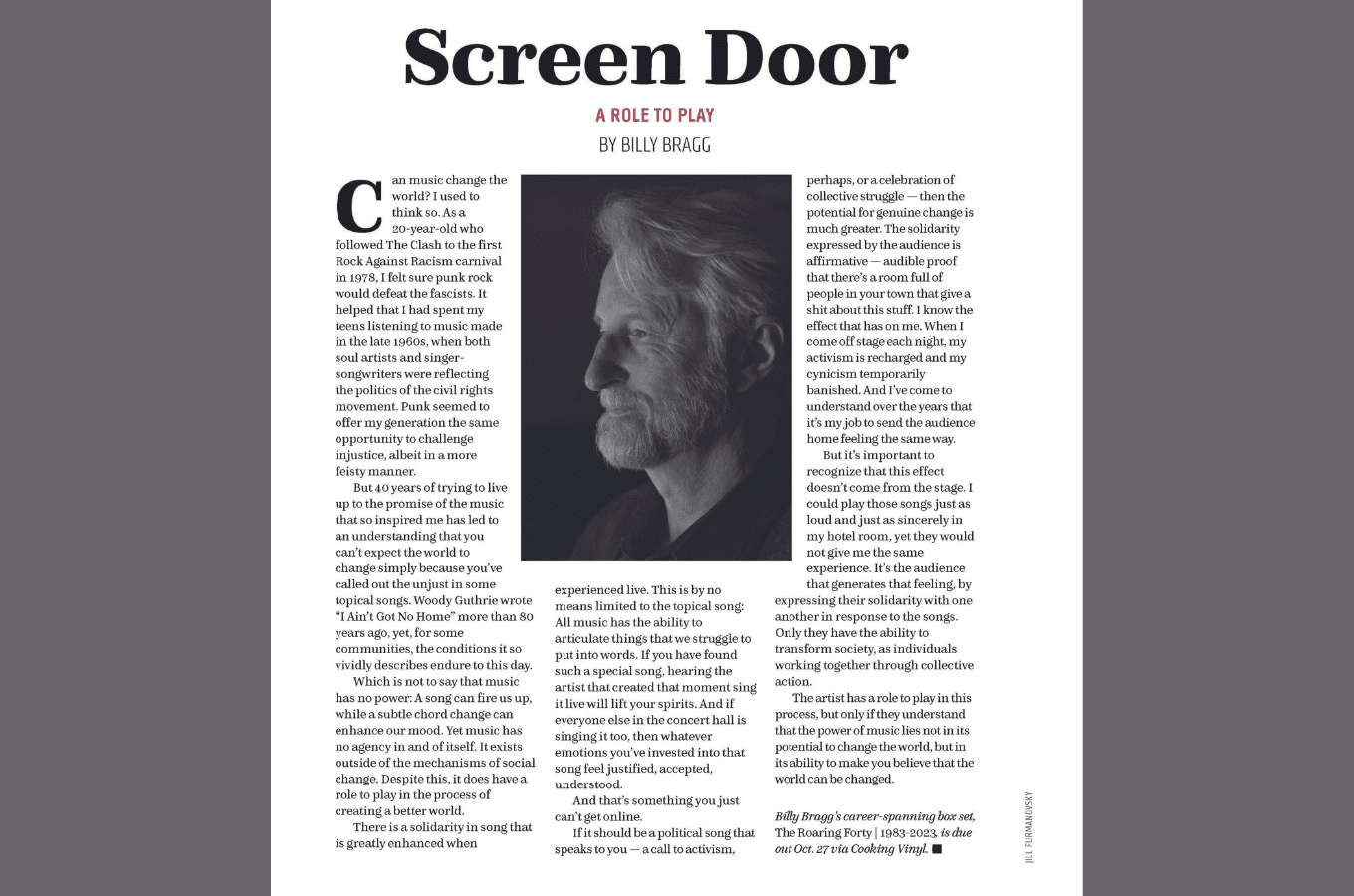JOURNAL EXCERPT: Billy Bragg on A Role to Play

EDITOR’S NOTE: This essay was the Screen Door — the final page — of the Summer 2023 issue of No Depression‘s quarterly journal. We’re sharing it online now in honor of Billy Bragg’s career retrospective boxset, The Roaring Forty | 1983-2023, which comes out this Friday via Cooking Vinyl. Get the Summer issue here or subscribe for a full year to support nonprofit music journalism.
Can music change the world? I used to think so. As a 20-year-old who followed The Clash to the first Rock Against Racism carnival in 1978, I felt sure punk rock would defeat the fascists. It helped that I had spent my teens listening to music made in the late 1960s, when both soul artists and singer-songwriters were reflecting the politics of the civil rights movement. Punk seemed to offer my generation the same opportunity to challenge injustice, albeit in a more feisty manner.
But 40 years of trying to live up to the promise of the music that so inspired me has led to an understanding that you can’t expect the world to change simply because you’ve called out the unjust in some topical songs. Woody Guthrie wrote “I Ain’t Got No Home” more than 80 years ago, yet, for some communities, the conditions it so vividly describes endure to this day.
Which is not to say that music has no power: A song can fire us up, while a subtle chord change can enhance our mood. Yet music has no agency in and of itself. It exists outside of the mechanisms of social change. Despite this, it does have a role to play in the process of creating a better world.
There is a solidarity in song that is greatly enhanced when experienced live. This is by no means limited to the topical song: All music has the ability to articulate things that we struggle to put into words. If you have found such a special song, hearing the artist that created that moment sing it live will lift your spirits. And if everyone else in the concert hall is singing it too, then whatever emotions you’ve invested into that song feel justified, accepted, understood.
And that’s something you just can’t get online.
If it should be a political song that speaks to you — a call to activism, perhaps, or a celebration of collective struggle — then the potential for genuine change is much greater. The solidarity expressed by the audience is affirmative — audible proof that there’s a room full of people in your town that give a shit about this stuff. I know the effect that has on me. When I come off stage each night, my activism is recharged and my cynicism temporarily banished. And I’ve come to understand over the years that it’s my job to send the audience home feeling the same way.
But it’s important to recognize that this effect doesn’t come from the stage. I could play those songs just as loud and just as sincerely in my hotel room, yet they would not give me the same experience. It’s the audience that generates that feeling, by expressing their solidarity with one another in response to the songs. Only they have the ability to transform society, as individuals working together through collective action.
The artist has a role to play in this process, but only if they understand that the power of music lies not in its potential to change the world, but in its ability to make you believe that the world can be changed.
Billy Bragg’s career-spanning box set, The Roaring Forty | 1983-2023, is due out Oct. 27 via Cooking Vinyl.




